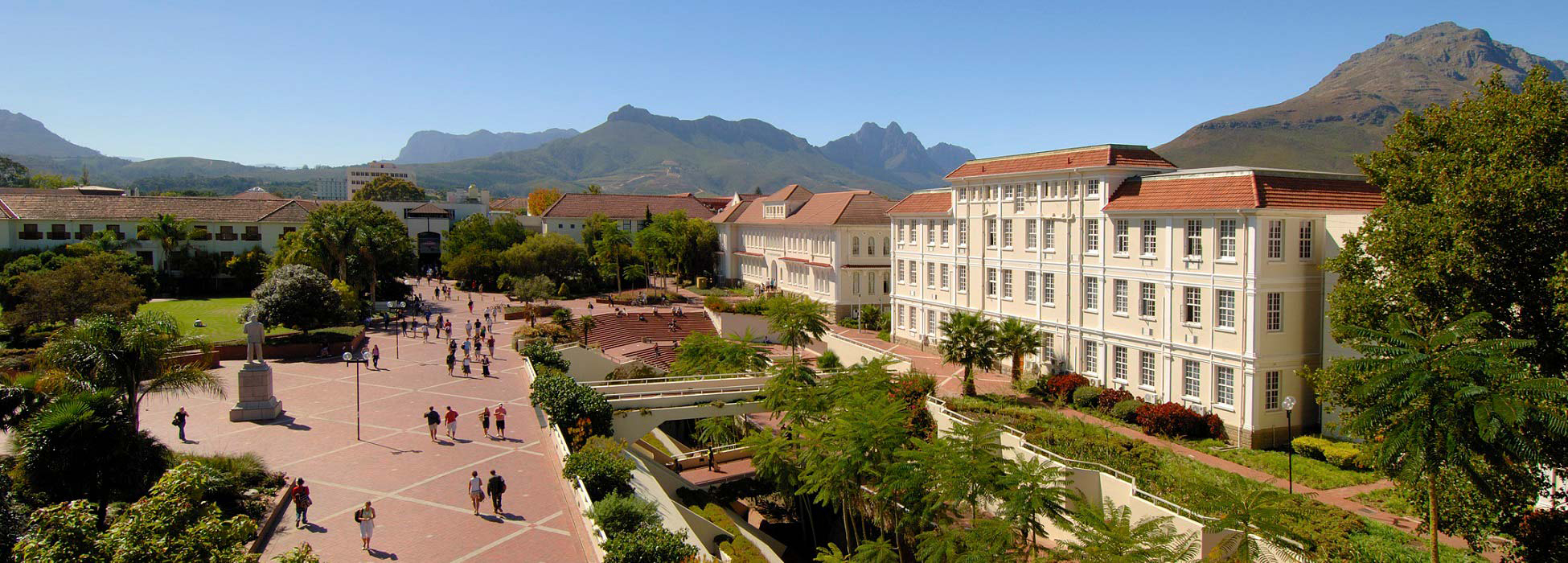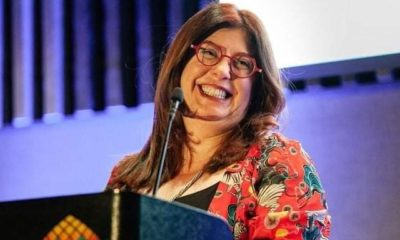
News

Cape Board efforts stop Stellenbosch exams on yom tov
Published
2 years agoon
Community members were appalled when Jewish students at Stellenbosch University (SU) told the SA Jewish Report about their anguish at having to write tests on high holy days in October 2021. But the Cape South African Jewish Board of Deputies (Cape SAJBD) has engaged with the university, which has implemented a policy to prevent it from happening again.
“The Cape SAJBD is mandated to protect Jewish life and the Jewish way of life,” says Cape SAJBD chairperson Tzvi Brivik. “We owe it to our community to champion its civil and political rights in all areas of public life, including academia. After receiving several complaints in 2021 from Jewish students at Stellenbosch University that tests had been scheduled over yom tov, we engaged with the university to ensure that Jewish students and all students whose religious and cultural beliefs don’t conform to the majority wouldn’t need to worry about assessments being scheduled over their high holy days.”
Looking back, Cape Board Executive Director Daniel Bloch says, “Seven students were impacted by the scheduling of tests over yom tov, with several submitting written complaints to us. They tried to engage their lecturers and faculty heads, but no accommodation was made. The students were appreciative of the Board’s assistance [at the time], yet were left frustrated.” The Cape Board then took the issue forward.
One of the students who spoke to the SA Jewish Report described how she had to desecrate Yom Kippur in order to write her test. “I’ve kept Yom Kippur every year since Batmitzvah age, so it was weird not doing it. It’s the most important day of the Jewish year, and I feel like I should have kept it. But I had no choice. I understand that there are many Jewish holidays and it’s difficult to change dates. But Yom Kippur shouldn’t have an exam on it,” she said at the time.
Now, still speaking on condition of anonymity, she says, “I’m happy that SU decided to do this because it shows that it’s inclusive of our culture. It makes me feel more comfortable being at this university, that they take our religion seriously, as well as every other religion. I feel a lot more comfortable going into exam season knowing that Yom Kippur – the most holy day for me – will be a free day where I can keep the rules.”
Says Brivik, “We were initially in contact with the SAUJS [the South African Union of Jewish Students] representative at Stellenbosch and then had assistance from our colleagues at our national office in Johannesburg. After a few weeks of engagement with no real breakthrough, we took the matter to the Stellenbosch University ombudsman to find out more about the complaints process.
“We were then directed to contact the deputy-registrar and registrar, which we did. Executive Director Daniel Bloch and I met in-person with the registrar, deputy-registrar, and the deputy vice-chancellor of Stellenbosch University to discuss the matter further. Thereafter, it was discussed with the university’s transformation committee, and it was agreed that the university would draft a policy dealing with the scheduling of assessments over religious and cultural days – the culmination of which is the Religious and Cultural Days Policy.”
The policy states that no assessments will be scheduled on listed dates, but the university will remain “open and operational” on those days. The dates include 16 April (Pesach day one; day two is on a Sunday); 23 April (Pesach day eight); 26 September (Rosh Hashanah day one); 27 September (Rosh Hashanah day two); and 5 October (Yom Kippur). In the document, the university emphasises that Jewish holidays start in the evening, and therefore no assessments are to be scheduled after 17:30 in the evening before the day of these holidays. The dates apply only to the 2022 academic year. Future arrangements will be implemented based on the specifics of each academic year.
“As much as the university empowers students to raise issues directly with it, it was very open to us engaging on the students’ behalf as this matter affected seven Jewish students from different faculties,” says Bloch. “We thank the university for its efforts to consider the religious beliefs of everyone by creating a safe environment where students can express and practice their religious beliefs.”
Going forward, Brivik says all university students should check their assessment dates and timeously bring any clashes to their lecturers’ attention. “If the lecturer is unable or unwilling to help, the student must escalate the matter to the faculty head, student representative, or deputy-registrar. Of course, the Board is able and willing to engage on the student’s behalf where no reasonable accommodation has been made.
“This important step by the university to acknowledge and accommodate religious diversity should be celebrated by all faiths and communities,” he says. “Now, students whose religious and cultural practices don’t conform to the majority can be assured that their access to assessment opportunities isn’t hindered. In order to build a South Africa that belongs to all and where we’re truly united in our diversity, we must empower minority groups to be heard and respected in all social spaces.”
SU Registrar Dr Ronel Retief said it was important to the university to follow up on this issue and engage with the SAJBD because, “Stellenbosch University respects the religious beliefs and cultures of all staff and students. It was important for us to explain the challenges that the university experienced to accommodate the requests of students for assessment-free days during 2021.”
This was especially important “given the impact that the pandemic had on our institutional calendar, which had to be shortened drastically with very little room for ad hoc rescheduling. We also indicated our commitment to scheduling assessment-free days during 2022 to accommodate students from various religions and cultures.”
Dr Zethu Mkhize, the head of the university’s transformation office, says the new policy is building on a draft guideline that was developed in 2020 “with the purpose of promoting cultural, religious, and spiritual engagement that values religious and cultural pluralism at Stellenbosch University, and to support the religious, cultural, or non-religious identities of all stakeholders.
“The draft document prioritises initiatives of social inclusion, which will promote a welcoming and enabling institutional culture as well as student access and success. Religious pluralism is a cornerstone of multiculturalism and social inclusion. The document is meant as a source of information on the various days of observation for religious faiths in South Africa with a specific focus on the potential impact on university activities at SU. The intention is to update the guidelines annually in response to the needs of the SU students.”






